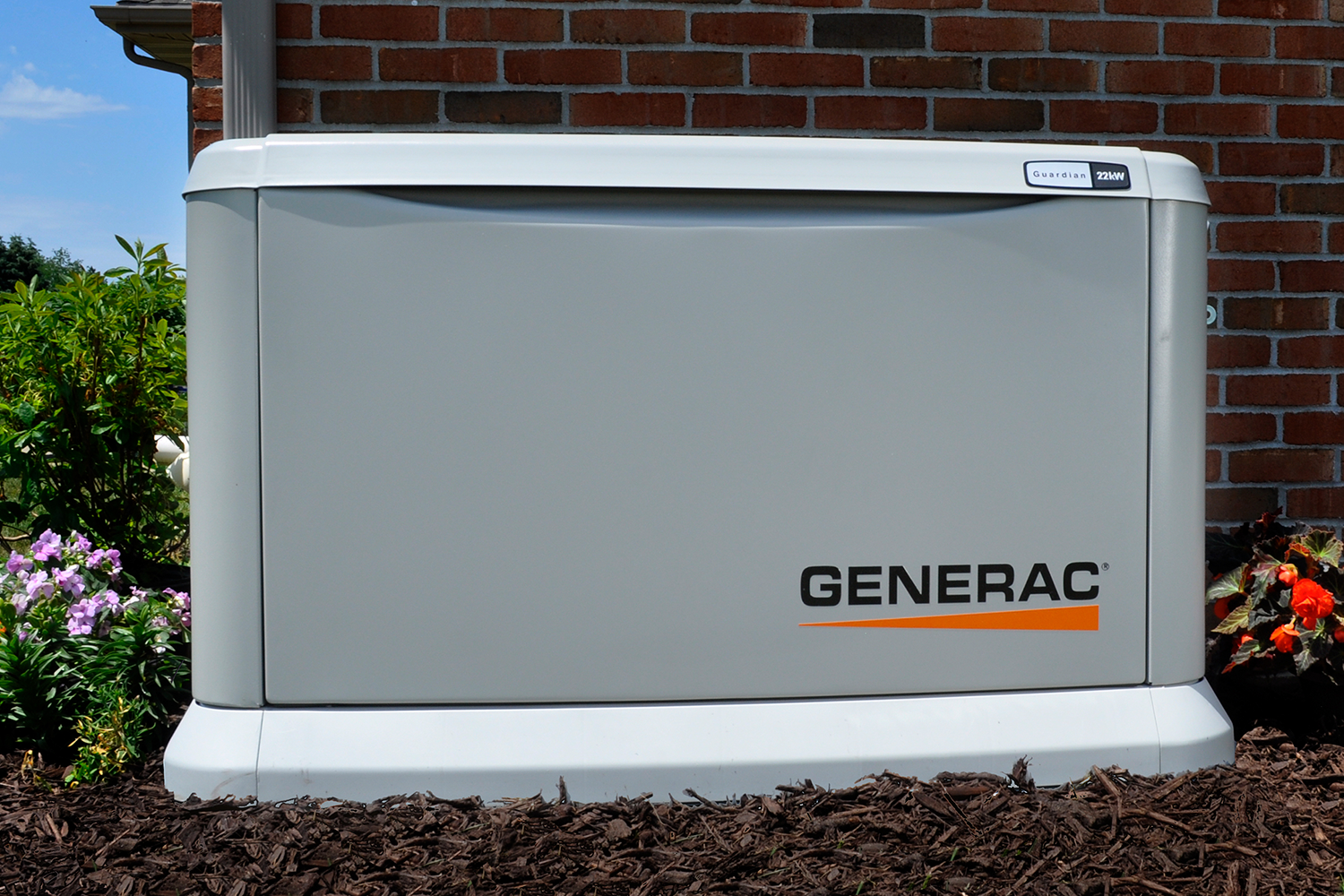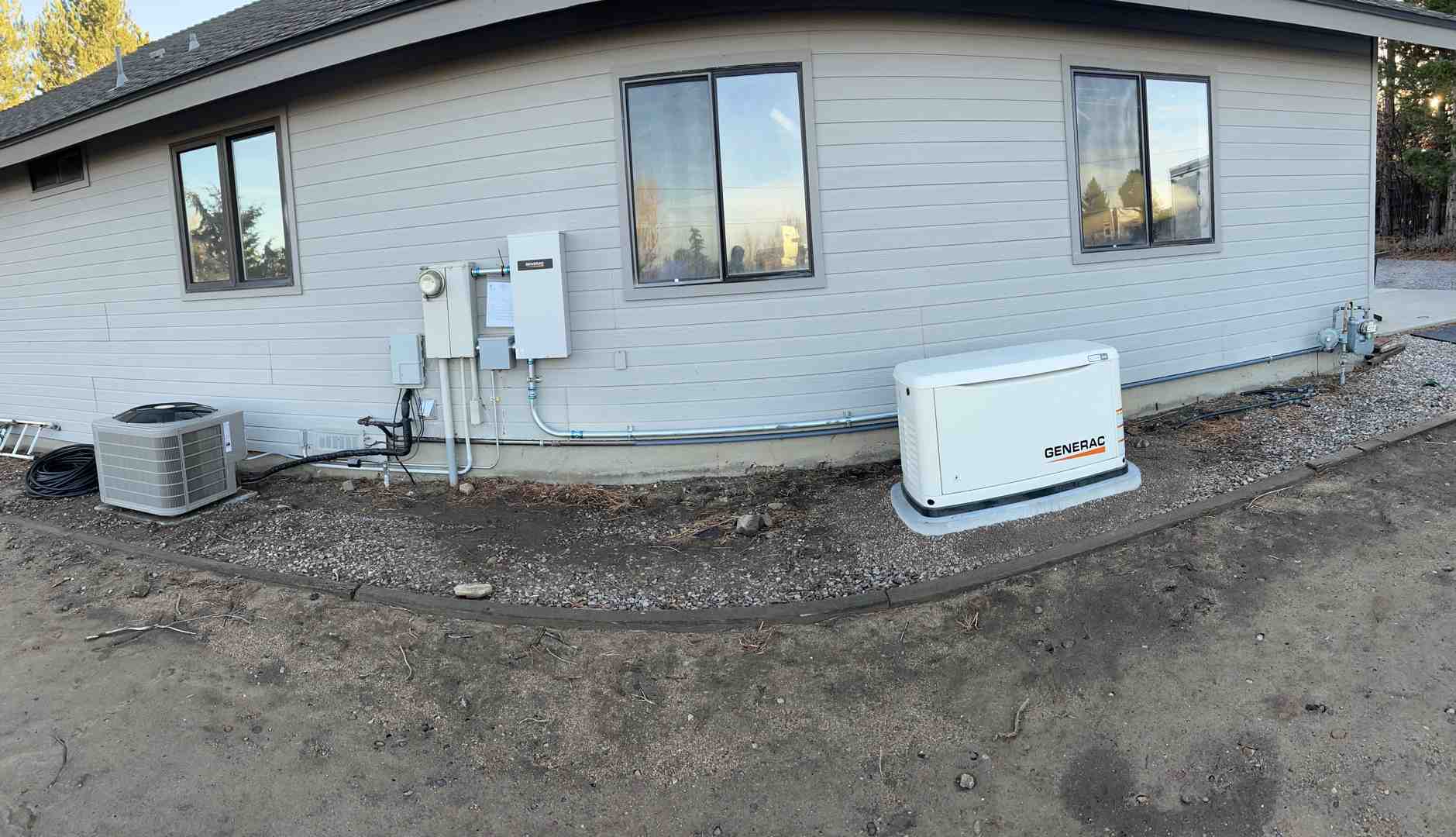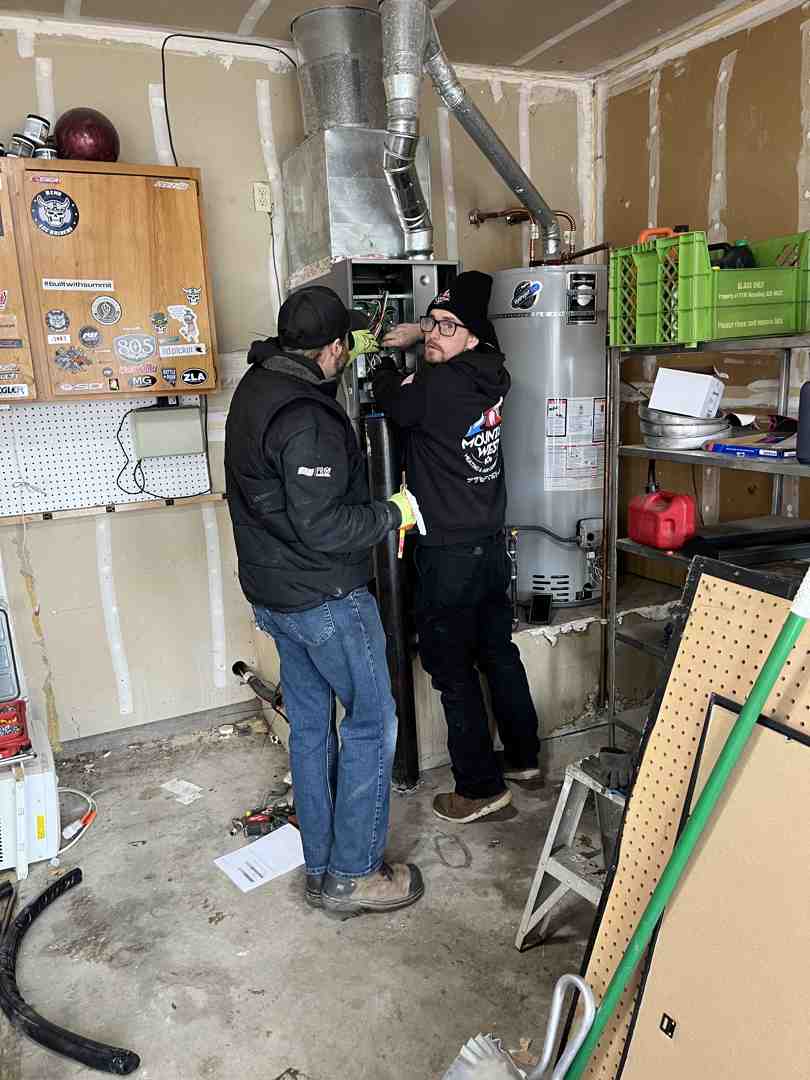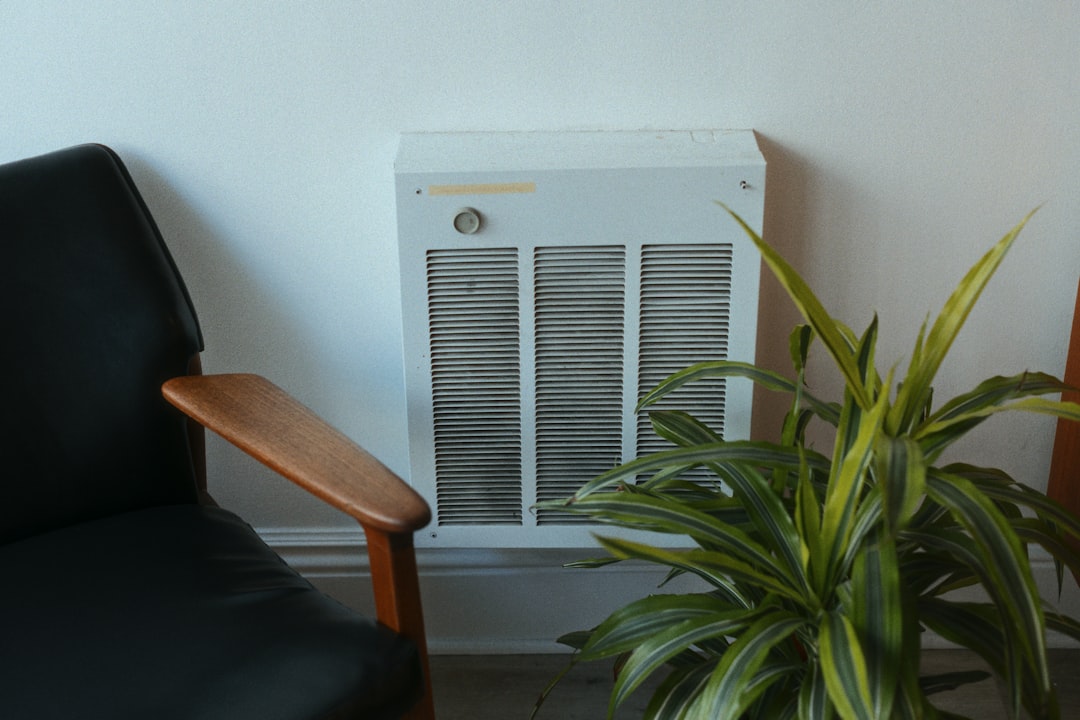A whole-house generator is a smart investment for homeowners who want to keep their lights on during power outages. These devices kick in automatically when the electricity goes out, powering your entire home within seconds.
A typical whole-house generator can run all your appliances, heating, cooling, and electronics without interruption.
That's why it is a smart investment for homeowners who want to keep their lights on during power outages, especially in Nevada.
A home standby generator provides peace of mind, knowing you'll have backup power ready at all times. It can keep your food from spoiling, medical devices running, and your family comfortable and safe during blackouts.
Standby generators come in different sizes to fit various homes and power needs. They run on fuels like natural gas or propane and connect directly to your home's electrical system.
While the upfront cost is higher than portable generators, whole-house models offer greater convenience and capacity. They can even boost your property value by making your home more appealing to buyers.
In this article, we’ll explain how they work, the benefits they offer, and what to consider before installing one.
Here's what you'll learn:
- How do whole house generators work?
- What’s involved in installing and operating a whole house generator?
- What features should you consider in a home standby generator?
- How to compare top whole house generator brands and models
- Why choose Mountain West for your home generator needs
Let's dive in!
How do whole house generators work?
Whole house generators provide backup power to keep homes running during outages. We'll explore the main types and how they work.
According to the U.S. Department of Energy, power outages in the U.S. have surged by 78% since 2011, primarily driven by extreme weather events.
This rising trend has led more homeowners to seek dependable solutions like a whole house generator to keep their homes safe and operational during outages.
What are the main types of whole house generators?
Standby generators are the most common whole-house generators, running on natural gas, propane, or diesel fuel. Natural gas models connect to existing gas lines. Propane and diesel units need separate fuel tanks.
Inverter generators are a newer type, producing cleaner power for sensitive electronics. These are usually smaller and quieter than traditional generators. Some whole-house generators can also switch between fuel types. This gives more flexibility during long outages when one fuel source might run low.
How standby generators work
Standby generators turn on automatically when the power goes out thanks to an automatic transfer switch that detects the outage and starts the generator. This switch also disconnects the house from the grid to prevent backfeeding.
The generator engine starts, powering the home's electrical panel and keeping appliances and systems running. When utility power returns, the transfer switch switches back, the generator shuts off, and the house reconnects to the grid.
Standby vs. portable generators: which is better for your home?
Standby generators offer more power and convenience than portable models. They can run a whole house, including central air and major appliances. Portable generators are smaller and cheaper but less powerful.
Standby units start automatically and run for days or weeks, while portable generators need manual setup and refueling every few hours. They also can't safely power an entire house. Portable generators are good for camping or job sites, but for true whole-house backup power, standby models are the better choice.
What’s involved in installing and operating a whole house generator?
Installing and running a whole-house generator involves key steps and considerations. Proper setup ensures reliable backup power when you need it most.
Generator installation requirements
A concrete pad is needed to support the generator's weight, and it must be level and meet local building codes. Proper ventilation is also crucial to prevent carbon monoxide buildup, and we recommend placing the generator at least 5 feet from your home's walls and windows.
A transfer switch is essential. It safely connects the generator to your home's electrical system, preventing backfeeding, which can harm utility workers.
Professional installation is often required, as electricians ensure proper wiring and compliance with local regulations. They also handle gas line connections for natural gas or propane generators.
How to choose the right size generator for your home
Generator size depends on your power needs, and we calculate this based on running watts and starting watts. Running watts are the continuous power needed for appliances and starting watts are extra power needed when motors start up.
To size your generator:
- List essential appliances
- Add up their running watts
- Factor in starting watts for large items
Common sizes range from 7,000 to 20,000 watts for homes, but larger homes or those with high-power needs may require more. A properly sized generator runs key systems without overload. This includes HVAC, refrigerators, and lighting.
How to maintain and troubleshoot your standby generator
Regular upkeep keeps your generator ready for action. We suggest:
- Monthly test runs (15-20 minutes)
- Oil changes every 50-200 hours of use
- Air filter checks and replacements
- Spark plug inspections
Keep the area around your generator clear of debris, too. This prevents overheating and fire risks.
Common issues include:
- Failure to start
- Unusual noises
- Frequent shutoffs
For starting problems, check fuel levels and battery condition, while strange sounds may indicate loose parts. Shutoffs could mean overloading or low oil. Always consult your manual for specific maintenance needs, but for complex issues, call a professional technician.
What features should you consider in a home standby generator?
Whole house generators come with many important features. We'll look at fuel options, safety measures, and costs to help you make the best choice for your home.
Fuel options and efficiency
Whole house generators can run on different fuels. The most common are natural gas, propane, and diesel.
Natural gas is often the cheapest and most convenient. It connects to your home's gas line, so you never run out of fuel. Propane is stored in tanks on your property and is a good choice if you don't have natural gas. Diesel generators are powerful but need refueling.
Newer, energy-efficient models use less fuel and run longer. Some generators also adjust their output based on your power needs, saving fuel when you're not using much electricity.
Is a whole house generator safe and eco-friendly?
Modern units have many built-in safety features, including automatic shutoffs if problems occur. Carbon monoxide detectors are a must to help prevent dangerous gas buildup.
Proper placement of your generator is important, and it should be away from windows and doors. This keeps exhaust fumes out of your home. Noise can be a concern, so look for models with good sound insulation. Some generators are much quieter than others.
Environmental impact is another big factor. Newer generators produce fewer emissions, and some meet strict environmental standards. Natural gas generators are often cleaner than diesel ones.
How much does a whole house generator cost?
Whole house generators are a big investment and prices vary widely based on size and features. A basic model might cost $3,000, while high-end units can be $15,000 or more. Installation is another expense and it often costs as much as the generator itself as you'll need an electrician and maybe a plumber.
Think about how often you'll use the generator. If power outages are rare, a cheaper model might work. For areas with frequent outages, a more robust system is worth it.
Fuel costs are ongoing. Natural gas is usually the cheapest, and propane and diesel can be more expensive. Maintenance is also part of your budget, and you’ll need to plan for yearly service checks.
How to compare top whole house generator brands and models
Choosing the right whole-house generator requires weighing different options, and there are key factors to consider when comparing home backup generators.
Which home standby generator brand is right for you?
Generac and Kohler are top brands for whole-house generators. Generac offers a wide range of models, like the Guardian 24kW. Kohler is known for its quality and reliability. Both brands have air-cooled and liquid-cooled options.
Air-cooled generators are cheaper and work for most homes. They can power essentials like fridges and space heaters. Liquid-cooled generators cost more but handle bigger loads. They're better for larger homes or hot climates.
Factors influencing generator performance
Power output is key for whole-house generators and is measured in kilowatts (kW). A 20kW generator can run most appliances in a medium-sized home, but larger homes may need 30kW or more.
Natural gas generators often cost less to run than propane. But propane is portable and stores well. However, some generators use both fuels, giving you options.
Climate affects generator choice, too, and hot areas need generators with good cooling systems. Cold places need models that start easily in freezing temperatures, and altitude can also impact performance, so check the specifications if you live in the mountains.
What warranty and support should you expect from a generator company?
A good warranty is crucial for whole-house generators, and most brands offer 5-year limited warranties. Some, like Generac, have 10-year options, but always check what's covered - parts, labor, or both.
Before investing, ask yourself: Can you get local service? Are parts easy to find? Good support makes owning a generator easier, and some companies offer 24/7 phone help, which is great for emergencies.
We suggest reading reviews about customer service. Fast, helpful support is vital when your power is out. Also, check if the company offers maintenance plans.
Why choose Mountain West for your home generator needs
When it comes to whole-house generators, the installer you choose matters just as much as the equipment. Mountain West is more than an HVAC contractor, we’re a trusted electrical service provider across Northern Nevada, known for quality workmanship, technical precision, and long-term customer support.
We specialize in generator installation, repair, and preventive maintenance, offering homeowners a reliable partner before, during, and long after installation.
With deep local experience and fully licensed electricians on staff, we understand the regional building codes, permitting processes, and environmental factors that affect generator performance in Nevada and surrounding areas.
Whether you're preparing for wildfire season, grid instability, or just want peace of mind during storms, our team builds systems that are tailored, safe, and built to last.
Expert installation and factory-backed maintenance
Installing a standby generator isn’t just about placing equipment next to your home, it’s a complex electrical and mechanical integration that demands precision.
At Mountain West, every installation is handled by licensed electricians trained for expert installation of oil, propane, natural gas, and fully automated systems, ensuring your setup meets code, performs safely, and holds up over time.
We begin with an in-depth site assessment that includes load calculations, ventilation planning, and fuel access review. Our team coordinates concrete pad installation, natural gas or propane connections, and full permitting with local authorities.
During the install, we connect the generator to your home’s electrical panel using a high-grade transfer switch, ensuring seamless activation when outages occur.
Once installed, our work doesn’t stop. Mountain West offers comprehensive maintenance plans that include scheduled inspections, firmware updates, load testing, and priority service response. This ensures your generator not only starts when you need it, but keeps running at optimal performance for years.
Flexible financing, including Generac systems
Whole-house generators are a long-term investment, and at Mountain West, we believe essential backup power should be accessible without putting strain on your budget.
That’s why we offer financing through Synchrony, including plans specifically designed for Generac generator installations.
Qualified customers can take advantage of 18-month, no-interest financing on system installs.
This means you can spread out your payments with zero interest, provided the balance is paid within the promotional period, helping you avoid upfront costs while protecting your home immediately.
Financing is available for both residential standby systems and supporting electrical work. Whether you're upgrading your panel or adding fuel infrastructure, we can bundle all qualifying expenses into a single monthly payment.
The application process is fast, digital, and available directly through our Financing page, making it easy to get started.
Know your monthly cost with our Estimate Builder
One of the biggest barriers to installing a standby generator is not knowing the true cost, especially with financing involved.
That’s why Mountain West offers a free, no-obligation Estimate Builder that gives homeowners instant, transparent pricing based on their actual needs.
The tool guides you through a few simple steps, starting with your home size, preferred system type, and electrical requirements. From there, it calculates your estimated cost and shows the lowest monthly financing option available through Synchrony.
Unlike generic price ranges, this estimate reflects real-world installation variables and the most affordable payment plan you qualify for.
It’s the fastest way to compare options, understand your budget, and move forward with confidence, without a sales call or home visit. If you’re considering a Generac system, the Estimate Builder is the best first step to see what reliable backup power could cost you per month.
Conclusion
Choosing the right whole house generator means investing in your home’s comfort, safety, and resilience. Whether you’re facing seasonal storms, wildfire outages, or grid instability, a reliable home standby generator ensures you never lose power when it matters most.
With the right unit, proper installation, and routine maintenance, you can enjoy peace of mind all year long. If you’re in the Mountain West region and want a trusted partner for installation, support, and service, Mountain West HVAC is ready to help.
Get in touch to discuss installing a whole-house generator at your property.








